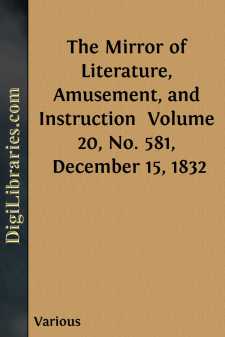Categories
- Antiques & Collectibles 13
- Architecture 36
- Art 48
- Bibles 22
- Biography & Autobiography 815
- Body, Mind & Spirit 144
- Business & Economics 28
- Children's Books 18
- Children's Fiction 14
- Computers 4
- Cooking 94
- Crafts & Hobbies 4
- Drama 346
- Education 58
- Family & Relationships 59
- Fiction 11835
- Games 19
- Gardening 17
- Health & Fitness 34
- History 1378
- House & Home 1
- Humor 147
- Juvenile Fiction 1873
- Juvenile Nonfiction 202
- Language Arts & Disciplines 89
- Law 16
- Literary Collections 686
- Literary Criticism 179
- Mathematics 13
- Medical 41
- Music 40
- Nature 180
- Non-Classifiable 1768
- Performing Arts 7
- Periodicals 1453
- Philosophy 65
- Photography 2
- Poetry 896
- Political Science 203
- Psychology 44
- Reference 154
- Religion 515
- Science 126
- Self-Help 85
- Social Science 83
- Sports & Recreation 34
- Study Aids 3
- Technology & Engineering 60
- Transportation 23
- Travel 463
- True Crime 29
Our website is made possible by displaying online advertisements to our visitors.
Please consider supporting us by disabling your ad blocker.
Murder in Any Degree
by: Owen Johnson
Description:
Excerpt
I
One Sunday in March they had been marooned at the club, Steingall the painter and Quinny the illustrator, and, having lunched late, had bored themselves separately to their limits over the periodicals until, preferring to bore each other, they had gravitated together in easy arm-chairs before the big Renaissance fireplace.
Steingall, sunk in his collar, from behind the black-rimmed spectacles, which, with their trailing ribbon of black, gave a touch of Continental elegance to his cropped beard and colonel's mustaches, watched without enthusiasm the three mammoth logs, where occasional tiny flames gave forth an illusion of heat.
Quinny, as gaunt as a militant friar of the Middle Ages, aware of Steingall's protective reverie, spoke in desultory periods, addressing himself questions and supplying the answers, reserving his epigrams for a larger audience.
At three o'clock De Gollyer entered from a heavy social performance, raising his eyebrows in salute as others raise their hats, and slightly dragging one leg behind. He was an American critic who was busily engaged in discovering the talents of unrecognized geniuses of the European provinces. When reproached with his migratory enthusiasm, he would reply, with that quick, stiffening military click with which he always delivered his bons mots:
"My boy, I never criticize American art. I can't afford to. I have too many charming friends."
At four o'clock, which is the hour for the entrée of those who escape from their homes to fling themselves on the sanctuary of the club, Rankin, the architect, arrived with Stibo, the fashionable painter of fashionable women, who brought with him the atmosphere of pleasant soap and an exclusive, smiling languor. A moment later a voice was heard from the anteroom, saying:
"If any one telephones, I'm not in the club—any one at all. Do you hear?"
Then Towsey, the decorator, appeared at the letterboxes in spats, militant checks, high collar and a choker tie, which, yearning toward his ears, gave him the appearance of one who had floundered up out of his clothes for the third and last time. He came forward, frowned at the group, scowled at the negative distractions of the reading-room, and finally dragged over his chair just as Quinny was saying:
"Queer thing—ever notice it?—two artists sit down together, each begins talking of what he's doing—to avoid complimenting the other, naturally. As soon as the third arrives they begin carving up another; only thing they can agree on, see? Soon as you get four or more of the species together, conversation always comes around to marriage. Ever notice that, eh?"
"My dear fellow," said De Gollyer, from the intolerant point of view of a bachelor, "that is because marriage is your one common affliction. Artists, musicians, all the lower order of the intellect, marry. They must. They can't help it. It's the one thing you can't resist. You begin it when you're poor to save the expense of a servant, and you keep it up when you succeed to have some one over you to make you work....












